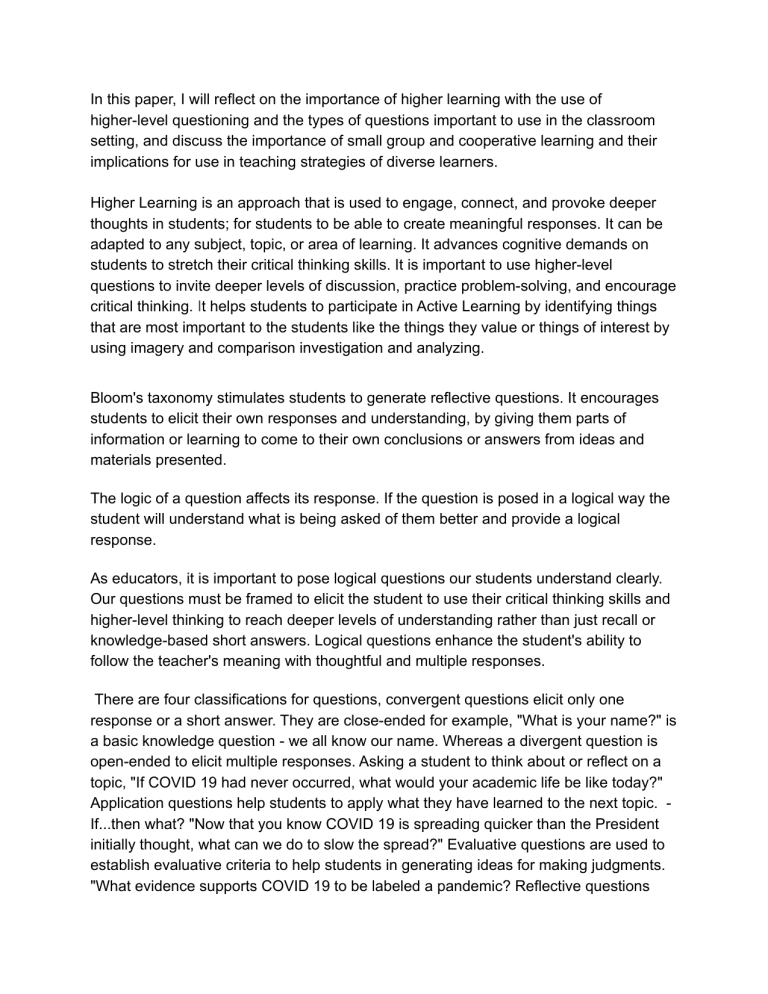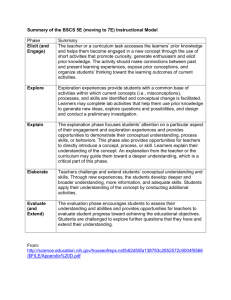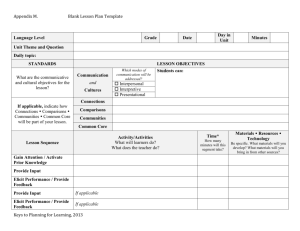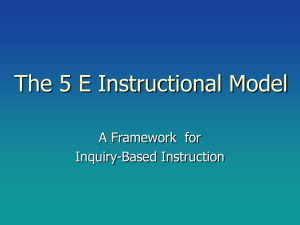
In this paper, I will reflect on the importance of higher learning with the use of higher-level questioning and the types of questions important to use in the classroom setting, and discuss the importance of small group and cooperative learning and their implications for use in teaching strategies of diverse learners. Higher Learning is an approach that is used to engage, connect, and provoke deeper thoughts in students; for students to be able to create meaningful responses. It can be adapted to any subject, topic, or area of learning. It advances cognitive demands on students to stretch their critical thinking skills. It is important to use higher-level questions to invite deeper levels of discussion, practice problem-solving, and encourage critical thinking. It helps students to participate in Active Learning by identifying things that are most important to the students like the things they value or things of interest by using imagery and comparison investigation and analyzing. Bloom's taxonomy stimulates students to generate reflective questions. It encourages students to elicit their own responses and understanding, by giving them parts of information or learning to come to their own conclusions or answers from ideas and materials presented. The logic of a question affects its response. If the question is posed in a logical way the student will understand what is being asked of them better and provide a logical response. As educators, it is important to pose logical questions our students understand clearly. Our questions must be framed to elicit the student to use their critical thinking skills and higher-level thinking to reach deeper levels of understanding rather than just recall or knowledge-based short answers. Logical questions enhance the student's ability to follow the teacher's meaning with thoughtful and multiple responses. There are four classifications for questions, convergent questions elicit only one response or a short answer. They are close-ended for example, "What is your name?" is a basic knowledge question - we all know our name. Whereas a divergent question is open-ended to elicit multiple responses. Asking a student to think about or reflect on a topic, "If COVID 19 had never occurred, what would your academic life be like today?" Application questions help students to apply what they have learned to the next topic. If...then what? "Now that you know COVID 19 is spreading quicker than the President initially thought, what can we do to slow the spread?" Evaluative questions are used to establish evaluative criteria to help students in generating ideas for making judgments. "What evidence supports COVID 19 to be labeled a pandemic? Reflective questions elicit a wide range of responses to encourage critical and higher-level thinking, "What have been some of the consequences of the COVID 19 MN Stay At Home Order?" Bloom's taxonomy can be used as a blueprint for lesson planning to assist the teacher to articulate meaningful questions that demonstrate student learning and attitudes in areas of knowledge and comprehension with the ability to apply what has been learned, analyze topics and make connections to previous learning. Cooperative learning is based on a small group approach to teaching that makes students accountable for their own and their group’s achievement. It is similar to small groups but it focuses more on student experiences in the process of learning outcomes. Small groups involve process objectives that develop skills over time that are more open to interpretation and student individual participation. Cooperative learning focuses more on tasks to be accomplished and uses several techniques to achieve interdependence. ● Positive interdependence teaches students to work together because everyone will do better when all working together ● Face to face interaction teaches students to interact and learn from one another ● Development of social skills teaches students how to communicate with each other effectively, appreciate one another, problem-solve, decision making and other interpersonal skills needed for school and outside school Our textbook describes 6 types of small groups that offer students an array of opportunities to learn by working with others to achieve desired tasks (Fig. 9:1 Pg. 257). Examining these types of groups leads me to the conclusion teachers can be involved at various levels depending on lesson plans; the teacher can be very hands-on or allow for a more student-directed approach in small group settings. The use of these teaching strategies create a more equitable learning experience for students in the classroom setting. As educators as we master these skills we will provide different strategies in varying ways depending on the needs of the students in our classrooms.



